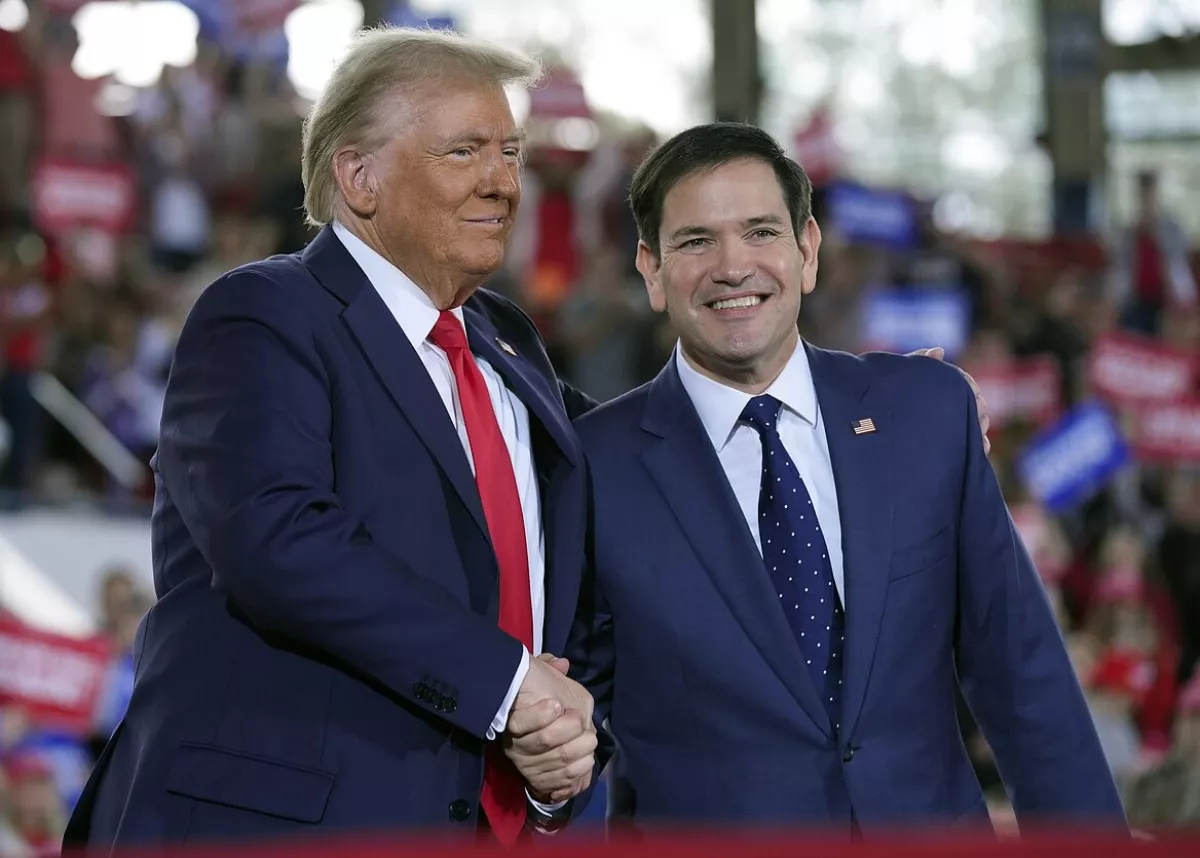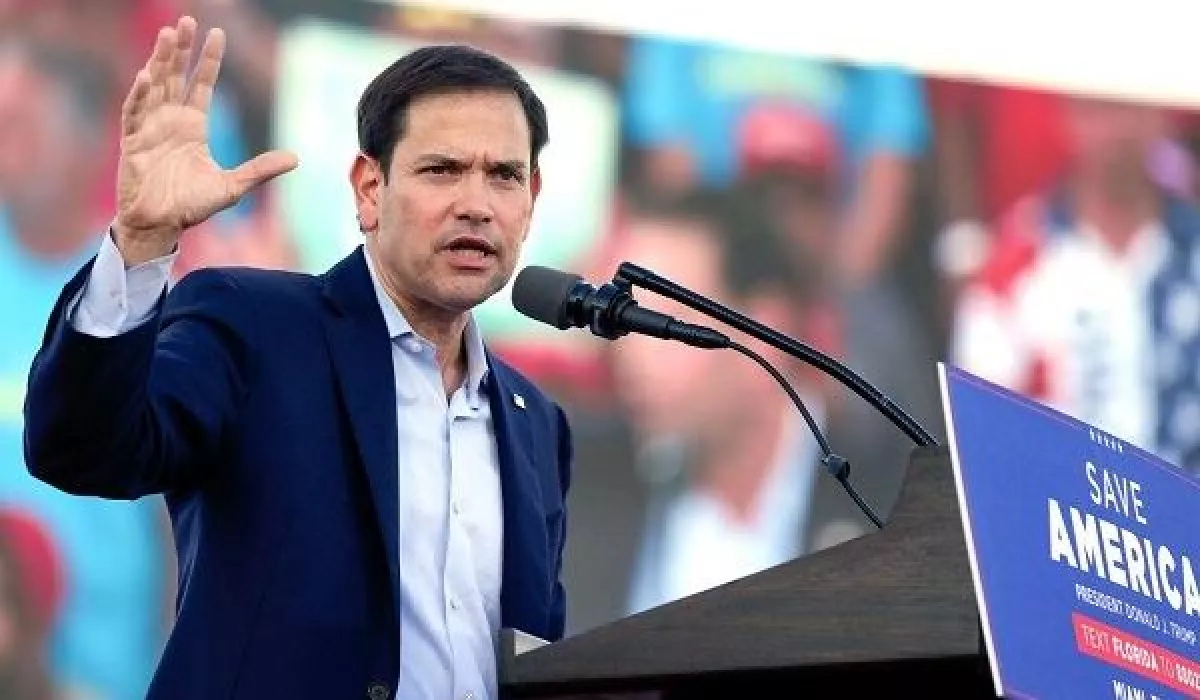Marco Rubio's foreign policy vision under Trump “Peace through strength”
Almost all global media outlets, referring to a post on the page of US Senator Marco Rubio, who was nominated by Donald Trump for the position of Secretary of State, have stated that he advocates for ensuring “peace through strength”. In more specific terms, it is mentioned that Rubio has expressed his readiness to "work every day to carry out his foreign policy agenda. Under the leadership of President Trump, we will deliver peace through strength and always put the interests of Americans and America above all else."
Before even beginning to analyze what the senator from Florida has said, let us take note of Trump's assessment of this politician as "a strong advocate for our nation, a true friend to our allies, and a fearless warrior who will never back down to our adversaries."

In general, reputable foreign outlets base their assumptions about Rubio's statement mainly through the lens of his position on the Russia-Ukraine issue. Naturally, this is framed against the backdrop of his previous remarks and the lack of clear predictions on how he would express himself if appointed Secretary of State. However, in any case, attention is first drawn to his call for resolving the military confrontation between Moscow and Kyiv through negotiations, where Rubio did not foresee any possibility for Ukraine to regain territories lost in the war. As he stated in September of this year, "I'm not on Russia's side — but unfortunately the reality of it is that the way the war in Ukraine is going to end is with a negotiated settlement."
In this light, analysts also point out that in early 2024, Rubio was one of 15 Republican senators who voted against a $95 billion military aid package for Kyiv. In this context, a number of experts interpret Rubio's statement about ensuring "peace through strength" as a reflection of his clear support for Trump's "America First" isolationist foreign policy, whose main goal is to keep Washington from direct involvement in conflicts beyond US borders.
In other words, some observers believe that Rubio's emphasis on "peace through strength" essentially means achieving favourable outcomes for the US in global geopolitics without directly involving the country in military actions on "foreign" territories. However, on the other hand, some experts have already drawn an analogy between Rubio's statement about "peace through strength" and the famous saying by Dmitry Medvedev about "coercion to peace," although, in Medvedev's context, it referred to direct military action, which, in Trump's view, should in no way become his hallmark.
Therefore, according to the same analysts, Rubio's vector appears to focus on ensuring the desired outcome for the US president by halting all wars in the world through proposals directed at the warring parties—proposals that, to borrow a famous line from a movie character, "no one can refuse." However, the nature of these proposals will likely depend on each individual case. Yet the fact remains: it seems that the first step in implementing Rubio's "peace formula" could be the Russian-Ukrainian platform. This is, for example, suggested by the comment of Germany's Foreign Minister Annalena Baerbock, who stated that Rubio made it clear how much "peace in Europe is a key issue for Americans." According to Josep Borrell, Europe "needs to prepare for the consequences of geopolitical changes, as the EU must become the master of its own fate." Meanwhile, "Deutsche Welle" has labelled Rubio a "hawk" in foreign policy.

In turn, according to an analysis by Trtrussian.com, if Marco Rubio is actually nominated for the position of Secretary of State, it can be confidently predicted that the US will shift to a tougher stance in international politics, which will manifest through the implementation of the "peace through strength" doctrine. As noted in the article, given that Rubio has repeatedly "emphasized the need for active opposition to China and Russia," his potential appointment "could increase pressure on these countries, redirecting Washington towards a more aggressive diplomatic strategy aimed at strengthening American influence and positions on the global stage."
In other words, Trtrussian.com, while not directly stating it, does not rule out the use of the "peace through strength" principle in relation to Moscow's position on halting military actions against Kyiv. Following this, the journalists referred to Rubio's statement about the need for the US, in light of the planet entering an era of “pragmatic foreign policy”, in which the world is rapidly changing, to act with significant pragmatism and wisdom in the direction of its actions and investments abroad, particularly through increasing coordination with China, Russia, North Korea, and Iran.
In this context, some Russian outlets recalled a statement made by Rubio in 2012, when he referred to the Russians as a "totalitarian nation." With the onset of Russia's operation in Syria, he labelled Russian President Vladimir Putin a "gangster" who only understands "the language of strength." Moreover, in 2017, Rubio was one of the co-authors of a bill that blocked any potential easing of anti-Russian sanctions. Additionally, Rubio had proposed renaming the street where the Russian embassy in Washington is located in honour of Russian opposition figures.
Overall, it seems that in the past couple of days, the "Rubio topic" has overshadowed the "Trump topic," which is understandable. While a more detailed analysis of the situation can be done after Rubio's official appointment as Secretary of State, this will also include his stance on the South Caucasus.
For example, a year ago, Rubio posted on his page that "U.S. taxpayer dollars should not be going towards Azerbaijan, a nation that has brought instability to the region. My Senate colleagues agree and together we passed the Armenian Protection Act. Urging my colleagues on the House to do the same."
In the summer of 2023, he became one of the co-authors of a bill urging the White House to impose sanctions on Azerbaijani officials and end all military aid to Azerbaijan due to the “blockade of the Lachin Corridor." In February of this year, Rubio was among the senators who signed a resolution to modify or end US security assistance to Azerbaijan, one of the reasons being Azerbaijan's so-called "ethnic cleansing during military operations in Karabakh." Further commentary on this is unnecessary…








